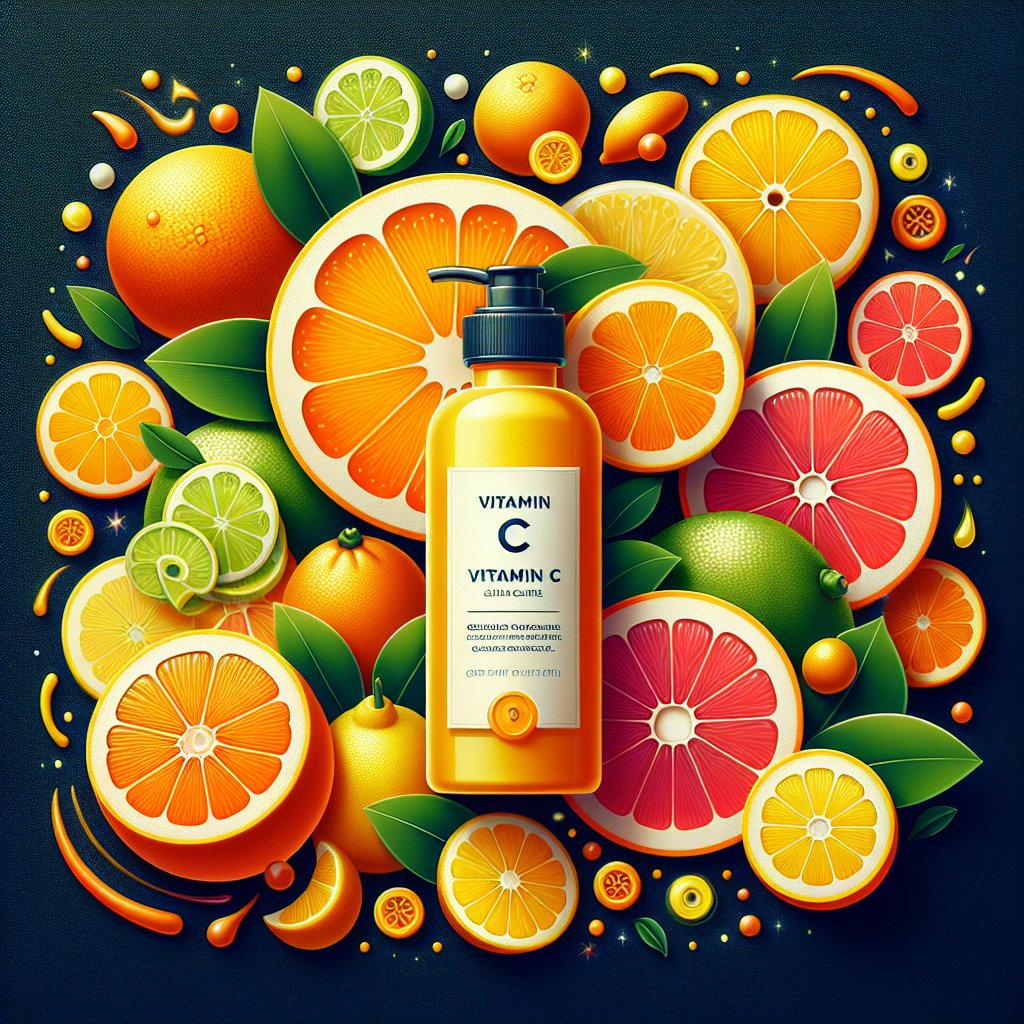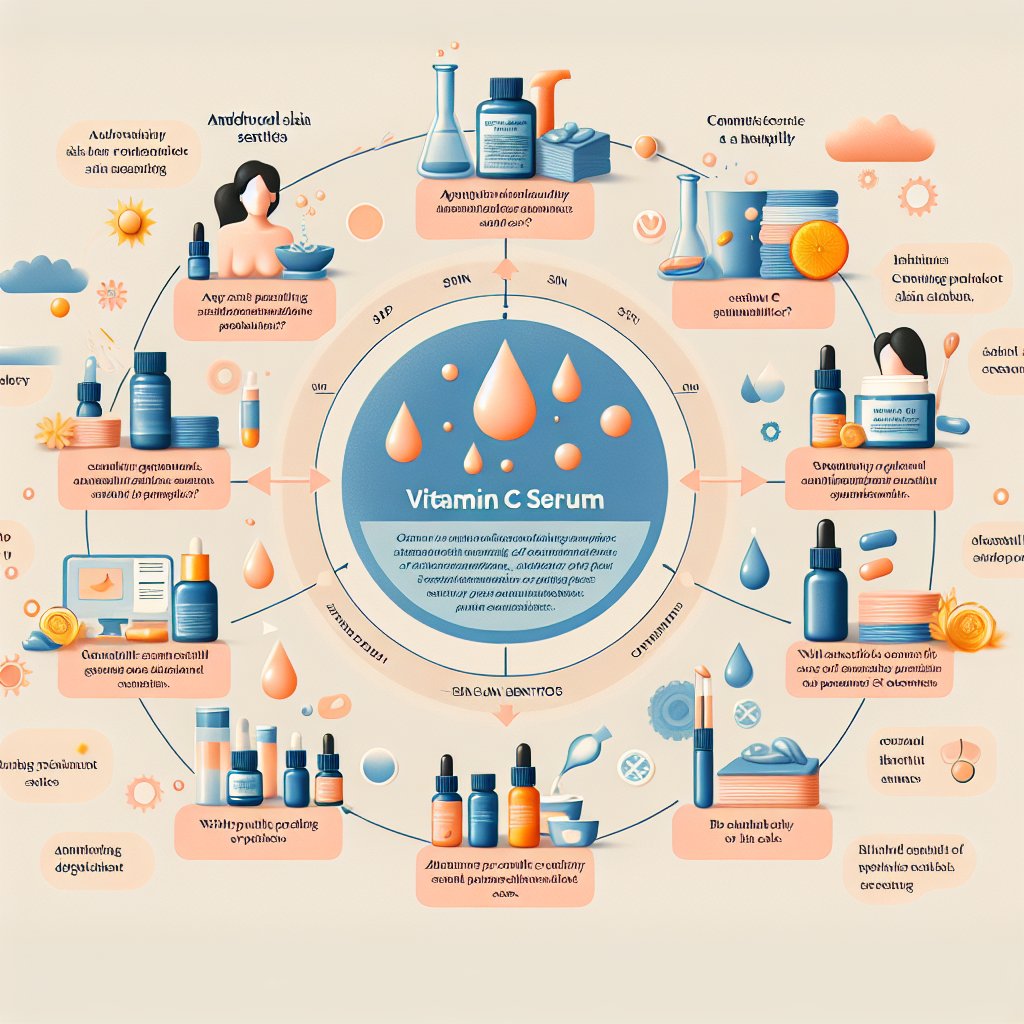Unlocking Relief: How Supplements for Interstitial Cystitis Transform Lives and Symptoms
Understanding Interstitial Cystitis
Interstitial cystitis, also known as painful bladder syndrome, is a chronic condition characterized by bladder pressure, bladder pain, and sometimes pelvic pain, ranging from mild discomfort to severe agony. It not only affects the bladder but can also have a significant impact on one’s overall quality of life. The exact cause of interstitial cystitis is not fully understood, but it’s believed to involve a combination of factors, including abnormalities in the bladder lining, an autoimmune response, and nerve dysfunction.
For those living with interstitial cystitis, the symptoms can be debilitating, leading to frequent bathroom visits, disrupted sleep, and emotional distress. The condition can make it challenging to engage in daily activities and enjoy a fulfilling social life. With such profound effects, it’s essential for individuals affected by interstitial cystitis to explore various management options, one of which includes the use of supplements.
The Potential Benefits of Supplements for Interstitial Cystitis
Supplements play a vital role in managing interstitial cystitis symptoms and improving the overall quality of life for those with the condition. They offer a holistic approach to addressing the underlying factors contributing to the discomfort associated with interstitial cystitis.
Research has shown that certain supplements can help alleviate the symptoms of interstitial cystitis. For instance, Quercetin, a flavonoid found in various fruits, vegetables, and grains, has been studied for its potential to reduce inflammation and provide relief to individuals with interstitial cystitis.
In addition, Glucosamine and Chondroitin, commonly known for their joint health benefits, have also demonstrated promise in supporting the bladder lining and reducing the symptoms of interstitial cystitis.
Furthermore, Probiotics have been shown to positively influence the gut microbiome, which may in turn help modulate the symptoms of interstitial cystitis, as there is a known connection between the gut and bladder health.
These supplements, along with others such as Calcium Glycerophosphate, L-Arginine, and L-Citrulline, have shown potential in providing relief and managing the symptoms of interstitial cystitis.
When used in conjunction with other treatment modalities such as dietary modifications, physical therapy, and stress management techniques, supplements can be a valuable component of a comprehensive approach to managing interstitial cystitis.

Understanding Interstitial Cystitis
Interstitial cystitis, also known as painful bladder syndrome, is a chronic condition causing bladder pain, pressure, and discomfort. It can have a significant impact on an individual’s quality of life, often leading to frequent urination and a persistent, urgent need to urinate. Those suffering from interstitial cystitis may also experience pelvic pain, which can range from mild to severe.
Research indicates that the exact cause of interstitial cystitis is not fully understood. However, several factors may contribute to its development, including a defect in the bladder lining, an autoimmune reaction, or a hereditary component. Additionally, individuals with interstitial cystitis may have a deficiency in the protective lining of the bladder, leading to irritation and inflammation.
The impact of interstitial cystitis on individuals can be profound. It can disrupt daily activities, work, and sleep, leading to emotional distress and mental health challenges. Many people with interstitial cystitis report feeling socially isolated due to the condition’s intimate nature, and this can lead to feelings of depression and anxiety.
Importance of Supplements in Managing Interstitial Cystitis
If you’re living with interstitial cystitis (IC), you know how challenging it can be to navigate the symptoms and improve your quality of life. While there isn’t a specific cure for IC, incorporating supplements into your daily routine can make a significant difference.
Research has shown that supplements play a crucial role in alleviating symptoms and improving the overall well-being of individuals with interstitial cystitis.
Understanding the Impact of Supplements
Supplements for interstitial cystitis are designed to target symptoms such as bladder pain, urinary urgency, and frequency. They work by supporting the health of the bladder lining, reducing inflammation, and promoting overall bladder function.
One essential supplement for IC management is Quercetin. Quercetin is a flavonoid found in various fruits and vegetables and is known for its antioxidant and anti-inflammatory properties. Studies have revealed that quercetin can help in reducing bladder pain and discomfort, making it a valuable addition to an IC-focused supplement regimen.
Improving Quality of Life
Individuals with interstitial cystitis often experience a significant impact on their quality of life, including disruptions in work, social activities, and personal relationships. By incorporating supplements as part of a holistic approach to IC management, many individuals have reported a noticeable improvement in their overall well-being.
One example of a supplement that has shown promise in improving quality of life for IC sufferers is Glucosamine and Chondroitin. These supplements are commonly known for their joint health benefits, but they have also demonstrated potential in supporting bladder health and reducing IC symptoms. Research has suggested that Glucosamine and Chondroitin may help alleviate pain and improve bladder function, contributing to a better quality of life for those with interstitial cystitis.
It’s important to remember that while supplements can be incredibly beneficial, they should be used in conjunction with other IC management strategies, including dietary modifications and stress reduction techniques.
By understanding the importance of supplements in managing interstitial cystitis and incorporating them into your daily routine, you can take positive steps toward alleviating symptoms and improving your overall quality of life.
Research on the Effectiveness of Supplements
Scientific studies have delved into the effectiveness of various supplements for managing interstitial cystitis, yielding encouraging findings for those seeking relief from its symptoms. Let’s explore some of the key research on supplements for interstitial cystitis.
Glucosamine and Chondroitin
A study published in the International Journal of Urology found that a combination of glucosamine and chondroitin sulfate supplements led to a significant improvement in the symptoms of interstitial cystitis. The research suggested that these supplements could contribute to the repair and maintenance of the bladder’s protective lining, thereby reducing discomfort and pain.
Quercetin
Research published in the World Journal of Urology indicated that quercetin, a natural compound found in certain fruits and vegetables, may possess anti-inflammatory and antihistamine properties that could benefit individuals with interstitial cystitis. The study suggested that quercetin supplements might help reduce bladder pain and urinary urgency associated with the condition.
Curcumin
A study in the Journal of Traditional and Complementary Medicine explored the potential of curcumin, the active compound in turmeric, in managing interstitial cystitis. The research suggested that curcumin’s anti-inflammatory and antioxidant properties could offer relief from the symptoms of the condition, making it a promising supplement for those seeking natural remedies.
These scientific studies paint a promising picture of the potential effectiveness of supplements for managing interstitial cystitis. While further research is needed, these findings offer hope and valuable insights into the role of supplements in transforming the lives and symptoms of individuals with this condition.
Commonly Recommended Supplements for Interstitial Cystitis
If you are seeking relief from interstitial cystitis, some specific supplements have shown promise in alleviating symptoms and promoting overall bladder health. While individual responses may vary, these supplements have been commonly recommended and embraced by individuals managing interstitial cystitis.
1. Quercetin
Quercetin is a natural flavonoid found in many fruits, vegetables, grains, and leaves. It possesses anti-inflammatory and antioxidant properties and has been studied for its potential benefits in managing interstitial cystitis symptoms. Research suggests that quercetin may help in reducing bladder pain and discomfort associated with interstitial cystitis.
2. Calcium Glycerophosphate
Calcium glycerophosphate is a form of calcium that is believed to contribute to bladder health. Studies have indicated that it may help in reducing the acidity level of urine, thereby potentially easing irritation in the bladder. Many individuals with interstitial cystitis have reported experiencing relief from symptoms after incorporating calcium glycerophosphate into their daily supplement regimen.
3. PEA (Palmitoylethanolamide)
PEA is a fatty acid that naturally occurs in the body and has anti-inflammatory properties. It has been the subject of research for its potential to alleviate pain and support bladder health in individuals with interstitial cystitis. Some studies have shown promising results in reducing pelvic pain and urinary symptoms in those with this condition.
4. Glucosamine and Chondroitin
Glucosamine and chondroitin are commonly used for joint health, but they have also been explored for their potential benefits in supporting the bladder’s protective lining. Some individuals with interstitial cystitis have found that these supplements contribute to reducing pelvic discomfort and improving bladder function.
Before incorporating any new supplements into your routine, it’s crucial to consult with a healthcare professional, as individual responses and interactions with other medications can vary. Additionally, while these supplements have shown promise in some individuals with interstitial cystitis, their efficacy is still being researched, and results may vary from person to person.
Dosage and Usage Guidelines
When it comes to using supplements for managing interstitial cystitis, it’s essential to understand the appropriate dosage and usage guidelines. While supplements can provide relief, it’s crucial to use them responsibly and as directed.
Consult with a Healthcare Professional
Before incorporating any new supplements into your routine, it’s crucial to consult with a healthcare professional, such as a urologist or a nutritionist, who is knowledgeable about interstitial cystitis. They can provide personalized recommendations based on your specific needs and medical history.
Following Recommended Dosages
Each supplement will have its own recommended dosage, which is often based on factors such as age, sex, and overall health. It’s important to carefully adhere to these guidelines to ensure safety and effectiveness. Taking more than the recommended dosage does not necessarily lead to better results and can even have adverse effects.
Gradual Introduction
When starting a new supplement, particularly for interstitial cystitis, consider gradually introducing it into your routine. This approach allows you to monitor for any potential adverse reactions and assess how your body responds to the supplement.
Consistency is Key
Consistency in supplement usage is crucial for experiencing potential benefits. It’s often recommended to take supplements at the same time each day to maintain steady levels in the body. However, it’s important to note that individual responses to supplements can vary, and it may take time to notice any changes in symptoms.
Monitoring and Adjusting
Regular monitoring of your symptoms and overall well-being is essential when using supplements for interstitial cystitis. If you notice any new or worsening symptoms, it’s important to communicate with your healthcare professional to make any necessary adjustments to your supplement regimen.
By following these dosage and usage guidelines, individuals can optimize the potential benefits of using supplements in the management of interstitial cystitis while ensuring their safety and well-being.
Potential Risks and Side Effects of Using Supplements for Interstitial Cystitis
While supplements can offer significant relief to individuals suffering from interstitial cystitis, it’s important to be aware of potential risks and side effects that may arise. Being mindful of these risks and knowing how to mitigate them can ensure a safer and more effective use of supplements for managing interstitial cystitis symptoms.
1. Allergic Reactions
Some supplements may contain allergens that can trigger allergic reactions in sensitive individuals. It’s crucial to carefully read the ingredient labels and consult with a healthcare provider before incorporating any new supplements into your routine. Additionally, starting with a low dose and gradually increasing it can help gauge any potential allergic responses.
2. Digestive Upset
Certain supplements, such as high doses of vitamin C or magnesium, can lead to digestive discomfort including diarrhea, nausea, or abdominal pain. To mitigate this, it’s advisable to start with the lowest effective dose and increase gradually, giving your body time to adjust. Choosing supplements in forms that are easier on the stomach, such as magnesium glycinate instead of magnesium oxide, can also help prevent digestive upset.
3. Drug Interactions
Some supplements may interact with medications, altering their effectiveness or causing adverse effects. It’s vital to disclose all supplements and medications you’re taking to your healthcare provider to ensure there are no potential interactions. Your healthcare provider can provide personalized guidance on how to adjust your supplement regimen to minimize the risk of interactions.
4. Quality and Purity
Ensuring the quality and purity of supplements is essential for safety. Opt for supplements from reputable brands that undergo third-party testing for quality and purity. This can help minimize the risk of consuming supplements that may be contaminated or contain undisclosed ingredients.
By staying informed about potential risks and adopting strategies to mitigate them, individuals can harness the benefits of supplements for interstitial cystitis while minimizing potential adverse effects.
Consulting a Healthcare Provider
Before starting any supplement regimen, especially for interstitial cystitis (IC), it is crucial to emphasize the importance of consulting a healthcare provider. While supplements can offer potential benefits, they may also interact with medications or exacerbate certain health conditions. Therefore, seeking professional medical advice is essential to ensure the safe and effective use of supplements for managing IC symptoms.
Research has shown that individuals with interstitial cystitis have specific dietary sensitivities and nutrient deficiencies that can contribute to their symptoms. For example, a study published in the British Journal of Nutrition found that patients with IC tend to have lower levels of certain vitamins and minerals, highlighting the potential role of supplementation in managing the condition.
When consulting a healthcare provider, it is valuable to discuss the specific symptoms and challenges related to interstitial cystitis. By collaborating with a healthcare professional, individuals can gain personalized insights into the most suitable supplements for their unique needs. Additionally, healthcare providers can offer guidance on dosage, potential side effects, and any necessary adjustments to current treatment plans.
Furthermore, involving a healthcare provider in the decision-making process can lead to a comprehensive approach to managing interstitial cystitis. Integrating supplements into a holistic treatment plan that considers dietary modifications, stress management, and other lifestyle factors can optimize the overall outcome for individuals with IC.
Ultimately, the expertise and guidance of a healthcare provider can empower individuals to make informed choices about incorporating supplements into their interstitial cystitis management, fostering a sense of confidence and security in their journey toward relief and improved quality of life.
Managing Interstitial Cystitis with Supplements
When it comes to managing interstitial cystitis, supplements play a significant role in providing relief and improving symptoms. Research has shown that certain supplements can be beneficial in alleviating the discomfort associated with interstitial cystitis. However, it’s crucial to approach supplementation with caution and under the guidance of a healthcare professional.
Supplements such as quercetin, a flavonoid found in fruits and vegetables, and calcium glycerophosphate have been studied for their potential to support bladder health and reduce inflammation associated with interstitial cystitis. Additionally, omega-3 fatty acids, commonly found in fish oil, have anti-inflammatory properties that may offer relief to individuals with this condition.
Understanding the Importance of Medical Advice
While supplements can be beneficial, it’s essential to emphasize the significance of seeking medical advice before incorporating them into your regimen. Consulting a healthcare provider, preferably one experienced in treating interstitial cystitis, can help ensure that the chosen supplements are safe and appropriate for your individual needs. Furthermore, healthcare professionals can provide guidance on effective dosages and potential interactions with existing medications.
It’s important to remember that while supplements may offer relief, they are not a substitute for professional medical care. Seeking expert advice is instrumental in creating a comprehensive treatment plan that addresses the unique challenges of interstitial cystitis.
Conclusion
In conclusion, supplements can be valuable allies in managing interstitial cystitis, offering the potential to transform lives by alleviating symptoms and improving overall well-being. However, it’s paramount to tread carefully and prioritize expert guidance when considering supplementation. Always consult with a healthcare professional to ensure that the supplements you choose are safe, suitable, and compatible with your individual health needs. By combining the benefits of supplements with medical oversight, individuals with interstitial cystitis can embark on a path towards unlocking relief and reclaiming their quality of life.


